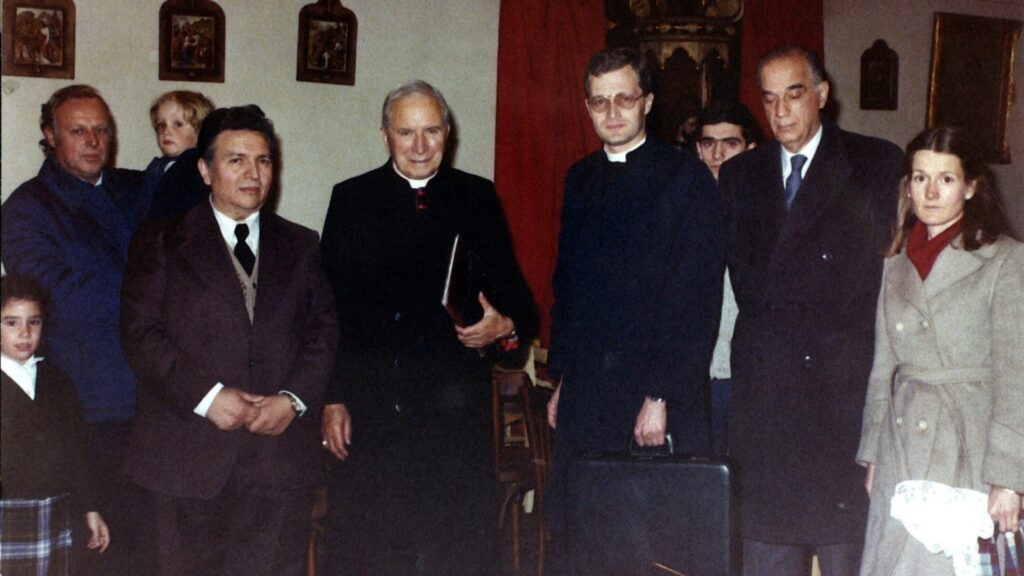Mainstream media, such as The New York Times, have reported in the wake of stabbings that killed three young girls and critically injured five more children at a dance-class in the seaside town of Southport near Liverpool on 29 July, that ‘an array of online influencers, anti-Muslim extremists and fascist groups have stoked unrest’.
They stated that the far-right was driven by online disinformation believing that the assailant, Axel Rudakubana—a Christian native Welsh born of Rwandan parents—was a Muslim immigrant. UK Prime Minister Keir Starmer condemned attacks as ‘far-right thuggery’. He added: ‘Be in no doubt: those who have participated in this violence will face the full force of the law.’
While the reporting on the riots is not false, it is not necessarily the entire truth.
The turmoil that has caused public disorder in the UK actually began in mid-July by rioters who were neither white nor British. In the suburban East London town of Tower Hamlets, which is inhabited by a population that is 40 per cent Muslim, hundreds of men violently took to the streets, hurling rocks, and smashing cars and property. Scotland Yard said ‘two large groups’ of men were fighting in the street, while hundreds were involved in wider demonstrations in Whitechapel, East London. The violence seems to have been linked to far larger and deadlier anti-government riots in Bangladesh. Naturally, this hardly received any coverage in the mainstream media.
Similarly hardly covered by the news were the fatal stabbings of a sixty-six-year-old woman and an eighty-year-old man last Sunday in Holon, Israel, by a thirty-five-year-old Islamic terrorist, Amar Razak Kamel Odeh, who lives in the West Bank. In like manner, last Friday in Ormesson-sur-Marne (Val-de-Marne), France, near the Pince-Vent shopping center, a Muslim male armed with a knife threatened police officers as he shouted ‘Allahu Akbar’ several times before he was arrested and taken into custody.
The immediate cover-up, if not justification, is that such violence at the hands of Muslims, especially if they shout ‘Allahu Akbar’, is that Islam is a religion of peace and such Islamists misrepresent Islam.
This could not be any further away from the truth.
Indeed, a world-historical societal transformation is taking place before our very eyes, and yet most people
willingly refuse to acknowledge it that there is an Islamic conquest of the West.
The Meaning of Allahu Akbar
Many who have never bothered to study Islam, which requires a minimal exposition to Arabic, sustain that ‘Allahu Akbar’ means ‘God is great’, when in fact it means ‘Allah (the Muslim god) is the greatest.’ The term ‘akbar’ is an Arabic superlative, not a descriptive or, better yet, a comparative, which translates to ‘greater’ or ‘greatest’.
‘Allahu Akbar’ is a recitation that empowers Muslims and makes them feel superior to the rest of humankind, which is why Islamic militants shout it as they kill people. It was first recorded in Ibn Ishaq’s chronicle, Sirat Rasul Allah (The Life of the Messenger of Allah), the first ever biography written about the prophet of Islam a couple of centuries after his death:
‘I leapt upon him and cut off his head and ran in the direction of the camp shouting ‘Allahu akbar’ and my two companions did likewise.’ Ibn Ishaq recalls the prophet’s command to his men prior to a military raid: ‘Fight everyone in the way of Allah and kill those who disbelieve in Allah.’[1]
While it is certainly used in benign situations, according to Sahih Muslim, Allah’s Prophet launched a raid against the Jews living in Khaybar in 628, ninety miles north of Medina, with the battle cry: ‘Allahu Akbar, Khaybar shall face destruction’.[2]
Defining Islam
The Quran states: ‘Truly the religion [din] in the sight of Allah is submission.’ (Sura 3, 19) Din, the Arabic word for ‘religion’, ‘commonly refers to a whole way of life…which permeates the whole fabric of society in a way of which men are conscious’. [3] Judging from its Semitic etymology, it can also be understood as a person subjected to ‘judgment’.
According to Islamic scholars, submission (islām) is both the proper name of the religion revealed through the Prophet and a state that explains the adherence to Allah’s will. A number of Muslims hold that verse 19 shows that the religion revealed to the Prophet of Islam is the only one acceptable to Allah, but its universal meaning, ‘which [has] been emphasized by many Islamic authorities over the ages, is the islām in this verse refers to submission to Allah even if it is not in the context of Islam as the specific religion revealed through the Quran.’[4]
‘Islam’ is the maṣdar—a verbal noun, or noun of action: the fourth form of the Arabic root s-l-m (al-Silm), which signifies ‘to submit’ or ‘to surrender’.[5] ‘Islam’, as a verb noun, is therefore ‘an action: it is something a person does, and it is by doing islām that a person makes himself or herself…a Muslim’.[6] Today, in light of Islamic polemics, many academics tend to define al-Silm with al-Salaam, which means ‘peace’.
The terms islām and salām stem from the same root, but they do not have a direct relationship. In the Arabic language, the root s-l-m, which is equivalent to sh-l-m in Jewish and in all Semitic languages, means ‘to be healthy, to be in peace’. In Arabic, salām means ‘peace’, salāma means ‘health’, and islām means ‘surrender’ or ‘submission’. Islām is derived from the verb aslama, which means ‘to submit’ or ‘to abandon oneself to’. Hence, islām is the act of abandoning or submitting oneself to God.[7]
Recognizing the Threat
In the United States, the first president, and perhaps the only one, who both acknowledged the conquering nature of Islam and did something about it was Thomas Jefferson.
In 1786, during a meeting between Jefferson, John Adams—then ambassadors to France and Britain respectively—and Sidi Haji Abdul Rahman Adja, Tripoli’s ambassador to Britain, Adja demanded tribute equal to one-sixth of the new nation’s entire budget.
When Jefferson asked why, because the infant U.S. had never attacked Tripoli, the Sheikh explained: ‘It’s the jihad.’
Following this diplomatic exchange, they explained the source of the Barbary States’ (in Libya) hitherto inexplicable animosity in a letter to Congress:
‘We took the liberty to make some inquiries concerning the grounds of their [Barbary’s] pretensions to make war upon nations who had done them no injury and observed that we considered all mankind as our friends who had done us no wrong, nor had given us any provocation. The ambassador answered us that it was founded on the laws of their Prophet, that it was in their Koran, that all nations who should not have acknowledged their authority were sinners, that it was their right and duty to make war upon them wherever they could be found, and to make slaves of all they could take as prisoners, and that every Musselman [sic] who should die in battle was sure to go to Paradise.’
Islam, and what its Barbary followers justified, doing in the name of their prophet and their god, profoundly disturbed Thomas Jefferson. The American nation had a tradition of religious tolerance. In fact, Jefferson himself had co-authored the Virginia Statute for Religious Freedom, as well as influenced the adopting of the First Amendment to the U.S. Constitution, which likewise granted freedom of religion. Islam, however, was like no other religion the world had ever seen. Congress eventually authorized Jefferson, once he took office, to send navy ships and attack the Barbary Muslims who were assailing and kidnaping U.S. merchants.
Today jihadists camouflage themselves as moderate and assimilated Muslims,
and are thus more difficult to single out because they wear business suits rather than bomb vests and prefer ‘lawfare’ to warfare,[8] which is why they have been accepted by the media and Western government representatives as proponents of peace. In their Janus-face approach, they publicly advocate free enterprise and freedom of speech and of religion, while simultaneously being involved in sharia-based subversion, encouraging hatred, segregation, and violence.
Just like Jefferson who confronted the conquering nature of Islam, Western leaders must do the same before the situation truly gets out of hand, as it appears to have happened in the UK.
[1]Ibn Ishaq, Sirat Rasul Allah, trans. A Guillaume, The Life of Muhammad. Oxford, Oxford University Press,1982, 671- 672.
[2] A. Z. Muhammad, “Allahu Akbar.”
[3] Shahab Ahmed, What Is Islam? The Importance of Being Islamic. Princeton, Princeton University Press, 2016, 187.
[4] Seyyed Hossein Nasr, ed., The Study of the Quran. New York: HarperCollins Publishers, 2015, 135.
[5] See Ahmed, 2016, 5. Ahmed cites L. Gardet, “Islām i. ‘Definition and Theories of Meaning’, Encyclopedia of Islam, Vol. 4. Leiden, E.J. Brill, 1978, 171–74.
[6] Ahmed, 101.
[7] Samir Khalil Samir, 111 Questions on Islam. San Francisco: Ignatius Press, 2008, 65.
[8] William Kilpatrick, Christianity, Islam and Atheism: The Struggle for the Soul of the West . San Francisco, Ignatius Press, 2012, 194–195.








